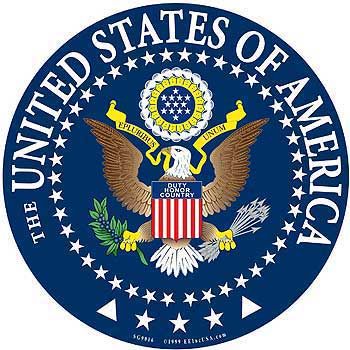Location
Britain's American colonies broke with the mother country in 1776 and were recognized as the new nation of the United States of America following the Treaty of Paris in 1783. During the 19th and 20th centuries, 37 new states were added to the original 13 as the nation expanded across the North American continent and acquired a number of overseas possessions. The two most traumatic experiences in the nation's history were the Civil War (1861-65), in which a northern Union of states defeated a secessionist Confederacy of 11 southern slave states, and the Great Depression of the 1930s, an economic downturn during which about a quarter of the labor force lost its jobs. Buoyed by victories in World Wars I and II and the end of the Cold War in 1991, the US remains the world's most powerful nation state. Since the end of World War II, the economy has achieved relatively steady growth, low unemployment and inflation, and rapid advances in technology.
The United States is a constitutional federal republic.
Source: CIA World Factbook
Members:
Resources
Displaying 1 - 5 of 11Pribilof Islands Transition Act (16 USC).
The Coral Reef Conservation Act of 2000 shall: preserve, sustain, and restore the condition of coral reef ecosystems; promote the wise management and sustainable use of coral reef ecosystems to benefit local communities and the Nation; to develop sound scientific information on the condition of coral reef ecosystems and the threats to such ecosystems; to assist in the preservation of coral reefs by supporting conservation programs, including projects that involve affected local communities and nongovernmental organizations; to provide financial resources for those programs and projects; and
Food, Agriculture, Conservation, and Trade Act of 1990.
This comprehensive basic enactment deals with various matters related to agriculture, rural development, agricultural research and environmental protection.
Farm Credit Act of 1971 (12 U.S.C. 2001).
This Act provides with respect to Federal programs for farm credit. It establishes the oversight, examination, regulatory, and enforcement authorities of the Farm Credit Administration over the Farm Credit System (FCS). The Act also sets forth the purpose and authorities of all FCS institutions. The Act provides with respect legal status, administration, operations, etc. of farm credit banks, production credit associations, Federal land bank association, banks for cooperatives and a revolving fund and the Federal Farm Credit Banks Funding Corporation.
Constitution of United States of America 1789 (rev. 1992)
The constitution was approved by Congress and ratified by state conventions.




